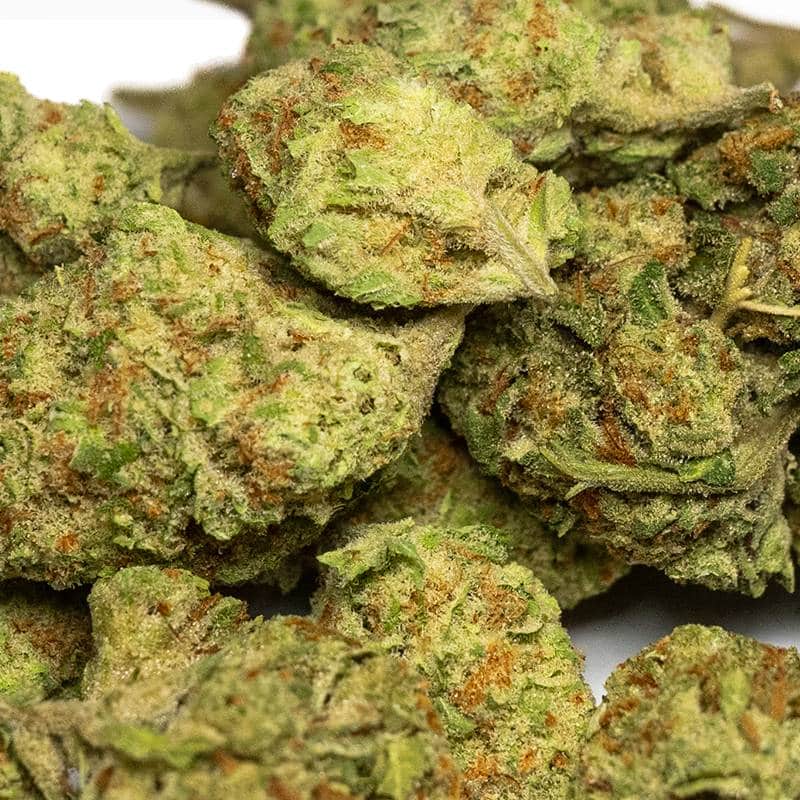Tetrahydrocannabinolic acid (THCA) has become a fascinating subject in cannabinoid research, standing out for its potential neuroprotective benefits. Unlike THC, its more famous decarboxylated counterpart, THCA is non-psychoactive in its raw form. This makes it a compelling option for those seeking therapeutic benefits without the intoxicating effects commonly associated with cannabis. From laboratory studies to emerging commercial availability through THCA Online, THCA Wholesale, and THCA White Label programs, the interest in THCA is rapidly growing—especially within health, wellness, and functional cannabis product industries.
THCA is found naturally in raw and live cannabis plants, particularly in freshly harvested flowers. It is the acidic precursor to THC, meaning that when THCA is exposed to heat through smoking, vaping, or baking, it converts into the psychoactive THC via a process called decarboxylation. However, in its unheated form, THCA offers an entirely different profile of benefits—chief among them, neuroprotection.
The Science Behind THCA
Scientifically, THCA is formed in the cannabis plant as cannabinoids synthesize from cannabigerolic acid (CBGA), the “mother cannabinoid.” Through enzymatic processes, CBGA converts into THCA, which then remains stable in raw plant material until it is decarboxylated.
One of the most intriguing areas of research centers on THCA’s potential interaction with the brain’s endocannabinoid system (ECS). While THC binds strongly to CB1 receptors in the brain, THCA does not appear to have the same binding affinity. Instead, its neuroprotective effects seem to be linked to its ability to modulate inflammation, oxidative stress, and possibly mitochondrial health.
A 2017 study published in the British Journal of Pharmacology suggested that THCA exhibited anti-inflammatory and neuroprotective effects in animal models of neurodegeneration. In these studies, THCA reduced neural cell death and promoted healthier brain cell function, showing promise for conditions such as Parkinson’s disease, Alzheimer’s, and Huntington’s.
Neuroprotection and THCA
The neuroprotective effects of THCA are gaining attention for their potential to safeguard neurons against degeneration. This is especially relevant for age-related cognitive decline and neurodegenerative diseases.
Several mechanisms have been proposed for THCA’s neuroprotective action:
- Anti-Inflammatory Properties – Chronic inflammation in the brain (neuroinflammation) is a hallmark of many neurological conditions. THCA appears to inhibit the release of pro-inflammatory cytokines, potentially preventing further neural damage.
- Antioxidant Activity – Oxidative stress, caused by an imbalance between free radicals and antioxidants, damages brain cells. THCA’s antioxidant profile helps neutralize these harmful molecules.
- Mitochondrial Support – Preliminary findings suggest THCA may help preserve mitochondrial function in neurons, ensuring healthy energy production and cell survival.
In 2019, researchers at the University of Barcelona demonstrated that THCA was effective in reducing motor impairments and neurodegeneration in animal models of Huntington’s disease. While human trials are still limited, the early data is compelling enough to drive further research.
THCA vs. THC in Therapeutic Use
It’s important to distinguish THCA from THC in therapeutic contexts. While THC has demonstrated neuroprotective properties in some studies, its psychoactive nature makes it less suitable for certain patients—especially those who are elderly, sensitive to THC, or concerned about its mind-altering effects.
THCA, on the other hand, offers a potential solution: a cannabinoid with similar or complementary neuroprotective qualities but without intoxication. This opens the door for broader acceptance in both medical and wellness applications, where non-psychoactive compounds are often preferred.
For this reason, THCA Online sales are increasingly targeted toward wellness consumers, herbal supplement enthusiasts, and patients exploring cannabinoid-based neuroprotection without the “high.”
Facts and Figures
- Discovered: THCA was identified in the early 1960s alongside THC by Israeli scientist Raphael Mechoulam and his team.
- Concentration in Raw Cannabis: Fresh cannabis can contain up to 20–30% THCA by dry weight, depending on the strain and cultivation method.
- Neurodegeneration Impact: According to the World Health Organization, over 55 million people globally live with dementia—a number projected to triple by 2050. Non-psychoactive cannabinoids like THCA may play a preventive or supportive role.
- Market Growth: The global legal cannabis market is expected to reach $73.6 billion by 2027, with THCA products making up a growing niche—particularly through THCA Wholesale supply chains.
Commercial Availability of THCA
The growing awareness of THCA’s potential benefits has driven a boom in its availability. Specialized growers, extractors, and distributors now offer THCA in various forms, including flower, tinctures, capsules, and concentrates. Because it is non-psychoactive until heated, THCA products often appeal to a more health-focused consumer base.
THCA Online
E-commerce platforms have made it easy for consumers to access THCA products directly. Whether in the form of raw cannabis flower or cold-pressed juices, buyers can explore lab-tested, strain-specific THCA options from reputable suppliers. This convenience allows customers to research, compare, and purchase from the comfort of their homes, with shipping often available nationwide depending on local laws.
THCA Wholesale
Bulk purchasing through THCA Wholesale programs is gaining traction among dispensaries, wellness shops, and alternative health clinics. Wholesale supply chains ensure a consistent product quality, competitive pricing, and reliable inventory for businesses seeking to meet rising demand. These programs are particularly popular among retailers who want to introduce high-quality, non-psychoactive cannabinoid products to their customers.
THCA White Label
For entrepreneurs and wellness brands, THCA White Label services offer an opportunity to launch products without investing in cultivation or extraction infrastructure. Businesses can customize packaging, branding, and marketing while relying on established producers for the raw THCA materials. This lowers entry barriers and accelerates time-to-market, making it an attractive option for startups in the cannabis wellness space.
Legal Considerations
While THCA itself is not psychoactive, its legal status can be complex. In some jurisdictions, THCA is regulated under the same framework as THC because it converts into THC when heated. In the United States, for example, THCA derived from hemp containing less than 0.3% delta-9 THC is often considered federally legal under the 2018 Farm Bill. However, state laws vary, and compliance requires careful attention.
Internationally, regulations differ widely. In Canada and much of Europe, cannabis laws are stricter, and THCA may fall under broader cannabis prohibitions unless specifically exempted for medical use.
Challenges and Future Research
Despite promising early findings, several challenges remain before THCA can be fully embraced as a neuroprotective therapeutic:
- Limited Human Trials – Most evidence comes from in vitro or animal studies. Large-scale, placebo-controlled human trials are necessary to confirm efficacy and safety.
- Standardization – Variations in cultivation, extraction, and storage can affect THCA concentration. Developing standardized dosing guidelines is crucial for consistent results.
- Regulatory Hurdles – Legal ambiguities can slow research, investment, and distribution, particularly across borders.
Looking ahead, research into THCA’s interaction with other cannabinoids—such as CBD, CBG, and CBN—may reveal synergistic effects, potentially leading to multi-cannabinoid neuroprotective therapies.
Conclusion
THCA represents an exciting frontier in cannabinoid science, offering neuroprotective potential without the psychoactive effects of THC. From reducing neuroinflammation to combating oxidative stress, its possible benefits span preventive brain health and the management of neurodegenerative diseases. With increasing commercial availability through THCA Online marketplaces, THCA Wholesale supply networks, and THCA White Label programs, the compound is poised to become a major player in the wellness and medical cannabis sectors.
As science catches up with consumer interest, the future of THCA looks bright—perhaps even life-changing—for those seeking natural ways to protect and enhance brain health.
Discover the future of cannabinoid wellness with NanoHempTechLabs—your trusted partner in premium THCA Wholesale solutions. Our lab-tested, non-psychoactive THCA products deliver exceptional neuroprotective benefits, meeting the growing demand for high-quality cannabis wellness offerings. From raw THCA flower to tinctures and custom THCA White Label programs, we provide businesses with reliable supply, competitive pricing, and unmatched consistency. With the rising popularity of THCA Online, now is the time to expand your product line and capture this fast-growing market. Partner with NanoHempTechLabs today—where science meets innovation. Schedule your call now to discuss how we can elevate your brand’s success.
Reference:
- Al-Khazaleh, A., Zhou, X., Bhuyan, D., Münch, G., Al-Dalabeeh, E., Jaye, K., … & Chang, D. (2024). The neurotherapeutic arsenal in cannabis sativa: insights into anti-neuroinflammatory and neuroprotective activity and potential entourage effects. Molecules, 29(2), 410. https://doi.org/10.3390/molecules29020410
- Gutiérrez‐Gil, B., Sullivan, M., Scaife, C., Glennon, J., & Herron, C. (2025). Cannabidiolic acid rescues deficits in hippocampal long-term potentiation in models of alzheimer’s disease: an electrophysiological and proteomic analysis. International Journal of Molecular Sciences, 26(10), 4944. https://doi.org/10.3390/ijms26104944
- Kim, J., Choi, P., Park, Y., Kim, T., Ham, J., & Kim, J. (2023). The cannabinoids, cbda and thca, rescue memory deficits and reduce amyloid-beta and tau pathology in an alzheimer’s disease-like mouse model. International Journal of Molecular Sciences, 24(7), 6827. https://doi.org/10.3390/ijms24076827





